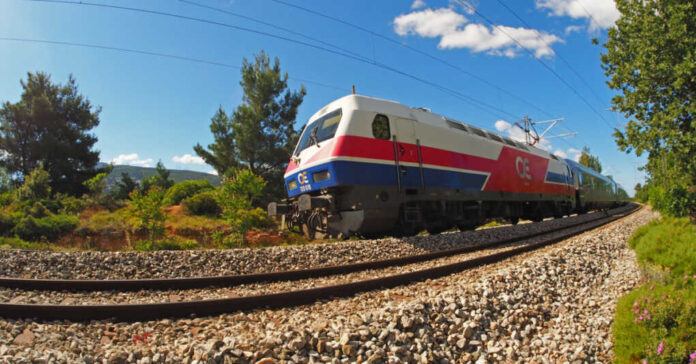
What’s going on with trains these days? It’s not just a US problem, apparently…
A head-on collision between a passenger train and a freight engine in Larissa, Greece on February 28th, is now one of the worst train tragedies in Greece. With at least 36 people dead and dozens hospitalized, the streets around the wreckage were bathed in the blood of the victims.
Passenger 28-year-old Stergios Minenis spoke with a Reuter’s newsagent after the wreck. “We were turning over in the carriage until we fell on our sides and until the commotion stopped. Then there was panic. Cables, fire. The fire was immediate. As we were turning over, we were being burned. Fire was right and left. For 10, 15 seconds it was chaos. Tumbling over, fires, cables hanging, broken windows, people screaming, people trapped.”
With the northern city of Thessaloniki as a destination, the train departed from Athens. When the trains suddenly collided head-on just before midnight local time, the front carriages simply burst into flames as other cars plowed into the wreckage. Currently, the wreckage is undergoing an investigation, and the Larissa station master has been arrested.
Passengers who spoke with the media described an absolute nightmare of a scenario. People were using their bodies to smash out windows and escape the flaming train cars, as one person told the BBC “People were panicking and screaming – some people were afraid they were going to die.”
Giannis Antonoglou was fortunate enough to have escaped from the fifth car in the passenger train. He said the windows were suddenly shattered out and “we ended up being tilted 45 degrees as if about to tip.” Another unnamed passenger spoke with Skai television, where he explained he was able to escape “fairly quickly,” however “in other wagons, they did not manage to get out, and one wagon even caught fire.”
With over 350 people on board, many 20-something students who were making their return trip to Thessaloniki after a long weekend celebrating Greek Orthodox Lent. Transport Minister Kostas Karamanlis has refused to provide a confirmed number of the dead or speak about the reports of 20-25 passengers who are still missing. While there are reports of people fleeing the wreckage and not being accounted for, they are unconfirmed.
One of the biggest challenges the investigators will face is recognition of the bodies. As Fire brigade spokesperson Vassilis Varthakogiannis reported, the 2,370*F (1,300*C) temps make it hard to identify the people who were inside.”
As the sun started to break the horizon, cranes were lifting the wreckage to look for more victims. A clearly exhausted worker exclaimed “I’ve never seen anything like this in my entire life. It’s tragic. Five hours later, we are finding bodies!!”
Unlike President Biden, Greek Prime Minister Kyriakos Mitsotakis did not hesitate to visit the train disaster. Arriving in the early morning hours of March 1st, his first order of business was to check on his countrymen. He vowed to find out what happened, and that the country shall never see an accident like this again. This kind of statement or the three days of national mourning is something we could never expect here in the US with a leftist in office.
So far, the Prime Minister has lived up to his word, with the 59-year-old station manager for the city of Larissa already facing charges of manslaughter by negligence and grievous bodily harm by negligence. Unsurprisingly, he has claimed that while he is in charge of signaling, he says he is not at fault, but rather a technical problem is what caused the accident.
No matter who’s at fault, this is a small part of the reason why rail travel was never heavily invested here in the US, and why we do not have high-speed rail as a result. The American people are not willing to take this kind of risk, and this collision is a prime example of why. We need to be safe, and while this “green” idea saves emissions, it doesn’t save lives.







